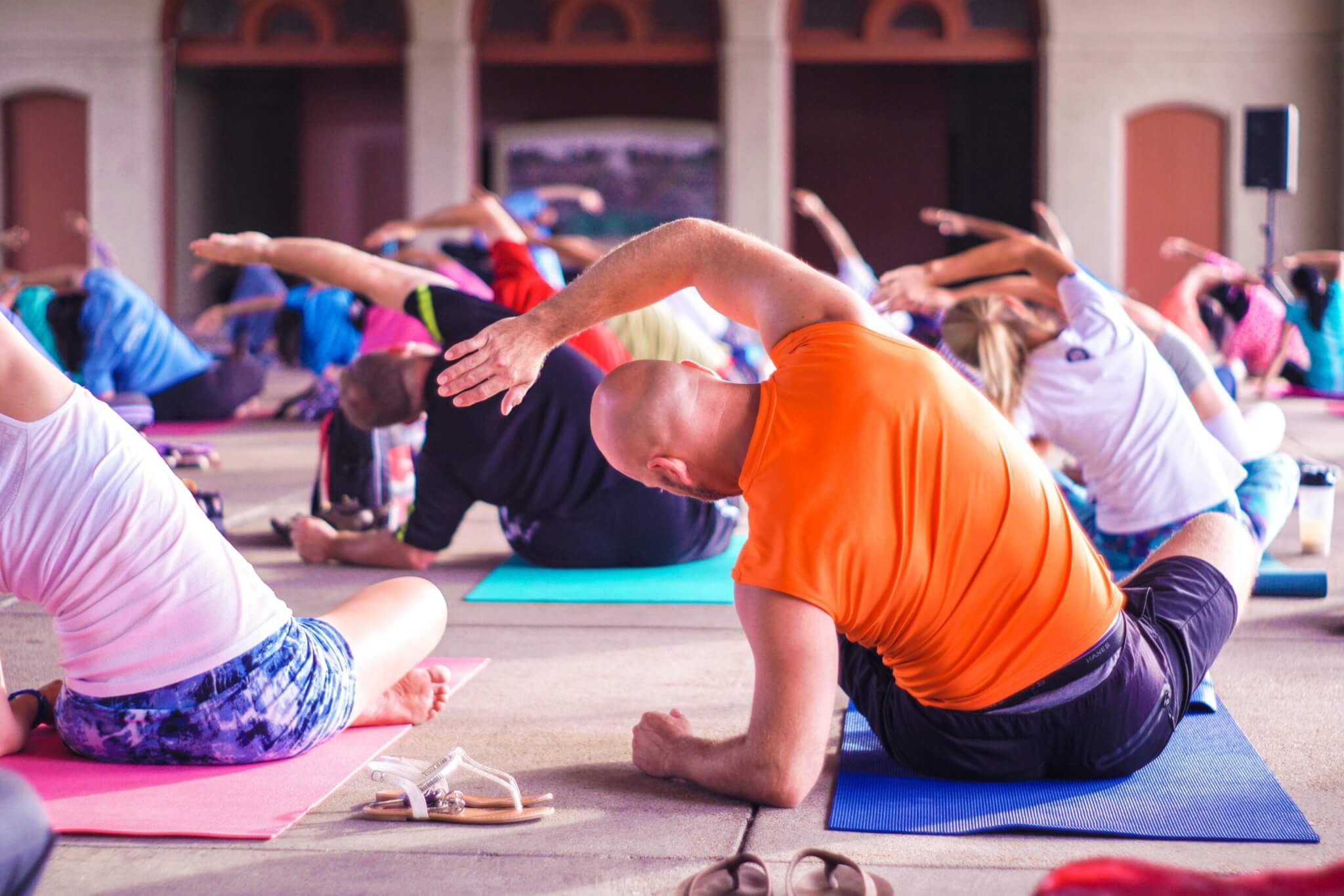Cognitive decline is one of the unfortunate effects of aging. A mind once sharp can dull over time leading to misplaced items, forgetfulness, and an overall decrease in mental alertness. And while you cannot combat your rising age, you certainly can fight off a declining mind. For that reason, we searched the web to find the best types of brain exercises, according to experts, and we’ve listed them here for you. These brain drills may combat some of the mind’s pitfalls that come with age.
New research from England finds the number of cases of cognitive decline more than doubled in 10 years, increasing the likelihood of dementia, and that’s truly a scary thought. In the study, more than 50,000 participants went to their doctor with concerns of memory loss. Nearly 15,000 experienced cognitive decline. Dementia and a decline in a sharpened mind can be the last straw before things like retirement as well, even though working can help to keep with brain function.
Even if you love your job, it’s difficult to not fantasize about early retirement. However, new research suggests that your brain health may suffer if you call it quits too soon, according to a recent study. The old saying, “use it or lose it” is actually true with regard to your brain. You’ll need to continue to challenge it to fight off cognitive decline. Another important factor is how social people remain as they age. If you become a hermit as you age, you may be doing yourself, and your brain, a disservice.
Though this research is scary it’s not our intent to worry you; we want to help you age gracefully with all your cognitive functions intact. And for that reason, let’s get to our list of the five best brain exercises, according to experts. As always, we want to hear from you, so comment below to let us know which brain exercise keeps you sharp!
The List: Best Brain Exercises, According to Experts
1. Puzzles/Games
This is a recommendation that topped many lists we reviewed. And with so many puzzles and games available, you’ll not soon run out of options for strengthening those neural pathways between your ears.
According to Healthline, “research has shown that doing jigsaw puzzles recruits multiple cognitive abilities and is a protective factor for visuospatial cognitive aging. In other words, when putting together a jigsaw puzzle, you have to look at different pieces and figure out where they fit within the larger picture. This can be a great way to challenge and exercise your brain.”
And if you prefer to play with words: “When you attempt a crossword puzzle, you use verbal memory as you seek words that match a certain number of letters that fit descriptive phrases. One study in the Journal of the International Neuropsychology Society found a possible connection between completing crossword puzzles and the delayed onset of accelerated memory decline in people who developed dementia,” writes Forbes.
Sudoku, the logic-based game that uses numbers, comes highly recommended from many experts. Regardless of which game you choose, you just want something that challenges your cognitive abilities, something that forces you to think.
Although not as traditional, Medical News Today mentions video games as a modern puzzle that strengthens the brain. “Some types of video games — such as action, puzzle, and strategy games — may lead to improvements in the following: attention, problem solving, cognitive flexibility.”

2. Learn a New Skill
The options here are endless. The important part is that you challenge your brain to process new information, to do things you’ve never done before. You want things that are out of your domain of knowledge.
Medical News Today mentions that “learning new skills engages the brain in different ways and may help improve brain function. A 2014 study of older adults found that learning a new and cognitively demanding skill, such as quilting or photography, enhanced memory function.”
An option that comes highly recommended is learning to play an instrument. Declutter The Mind writes: “By taking up a musical instrument like the violin or piano, you can help your brain better pay attention and think creatively. It’s well known that musicians have superiority in many areas of their mental functions, including memory, attention span, and creativity.”
“Tactile hobbies like model building and knitting utilize procedural memory, which includes understanding, remembering and performing a sequence of actions, says Dr. Tan. As a bonus, you end up with a finished product that showcases your skills,” says Forbes in their review.
Other options that appeared often were cooking and dancing classes. These are great ways to challenge your brain, and, in the case of dance, your body too.

3. Brain Games
These online games and apps have become extremely popular, but research still isn’t clear on whether they work, or if they do, exactly to what extent. Though if they’re challenging your cognitive abilities, it’s likely that you’ll benefit from them.
“Many of these tools claim that these computerized brain exercises can increase your mental flexibility, keep you mentally sharper as you age and even make you more intelligent,” writes Very Well Mind.
Summa Health writes that “brain training has become a popular exercise in recent years. From formal courses, online programs and books, people are realizing the benefits of training their brains to sharpen response times and attention.” They go on to note: “Whichever exercises you choose, focusing on your brain health has been proven to improve your concentration, focus, memory and mental agility, no matter your age.”
“Lumosity, Cognifit, Sharpbrains, BrainHQ and others provide free brain games daily—and many more for people willing to pay for a subscription—that challenge memory, attention and concentration skills. Does playing these games lead to long-term cognition improvement? It’s not known for certain, but they are engaging and fun,” adds Forbes.
Though reviews are mixed on these, they do come highly recommended. In the end, anything that makes you think in new ways is going to benefit you.
4. Exercise
You had to know exercise would make this list. The list of benefits from exercise is extensive, and brain health happens to be one of them.
According to Eating Well, “an estimated 40% of people ages 65 and older experience some degree of age-related cognitive decline. In the U.S. alone, that equates to approximately 21 million people. Whether you are over 65 and concerned about age-related memory loss or are simply looking to implement measures to improve cognition, research overwhelmingly shows that exercise is one of the most important daily habits to include to prevent cognitive decline.” And if you’re wondering exactly which types of exercise, a combination of aerobic exercise and resistance training were recommended.
Tai Chi is another form of exercise that showed up frequently. “Older adults who practiced tai chi for 12 weeks had a greater ability to multitask than those who didn’t practice it, according to a 2018 study published in the journal Frontiers in Aging Neuroscience. They also had more activity in the prefrontal cortex, the part of the brain where higher-level thinking occurs,” writes AARP.
And as we mentioned earlier, dancing is another great choice where it’ll challenge your body and your mind. If you’re already a proficient dancer, you can certainly learn new types of dances to challenge yourself. “In other words, bust a move on the dance floor and your brain will thank you,” says Healthline.

5. Use Your Non-Dominant Hand
Awkward? Very. Beneficial? Very. We know we don’t have to convince you of how hard you’ll need to focus to use your non-dominant hand to perform everyday activities. And it’s that focus which will challenge your brain. The end result is that you’ll retain mental sharpness.
Patient recommends “using your non-dominant hand for 15 minutes of activity.” Try brushing your teeth this way. Though you may end up with toothpaste all over your face, you’ll still be challenging your brain. You can also do this while practicing a sport: throw a ball with your non-dominant hand; swing a racket, bat, or golf club; shoot a puck all with your opposite hand or side of your body.
And from Very Well Mind: “In his book Keep Your Brain Alive: 83 Neurobic Exercises to Help Prevent Memory Loss and Increase Mental Fitness, neurobiologist Lawrence Katz recommends using your non-dominant hand to strengthen your mind. Because using your opposite hand can be so challenging, it can be a great way to increase brain activity.” They go on to recommend that you “try switching hands while you are eating dinner or when you are trying to write something down. It will be difficult, but that is exactly the point.”
Yes, with this brain exercise you may look and feel silly, but you’ll have the last laugh when your cognitive abilities last all your years.
Sources:
- Healthline
- AARP
- Forbes
- Very Well Mind
- Eating Well
- Medical News Today
- Declutter The Mind
- Summa Health
- Patient
You may also be interested in:
Note: This article was not paid for nor sponsored. StudyFinds is not connected to nor partnered with any of the brands mentioned and receives no compensation for its recommendations. This post may contain affiliate links.
